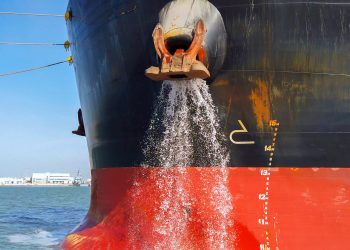Throughout 2017, there were 31,315 inspections in the Tokyo MoU region, involving 17,369 individual ships registered under 99 flags, according to data provided by the Tokyo MoU 2017 annual report. Out of these, there were 18,113 inspections where ships were found with deficiencies. As the total number of individual ships operating in the region was estimated at 24,939, the inspection rate in the region was approximately 70% in 2017.
Detentions
- In 2017, 941 ships registered under 69 flags were detained, due to serious deficiencies found onboard.
- The detention rate of ships inspected was 3.00%.
- Both the number of detentions and detention percentage has decreased continuously.
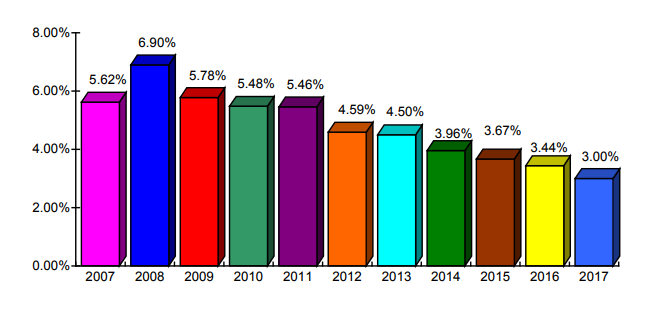
- The top frequent detainable deficiency was on Lifeboats.
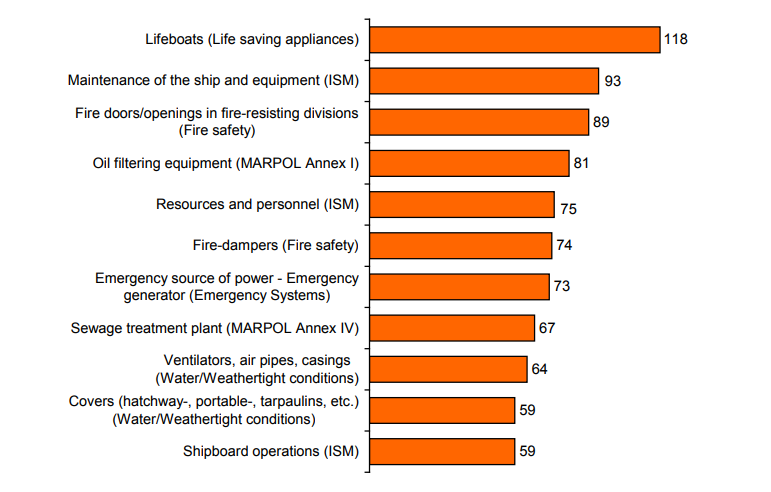
[smlsubform prepend=”GET THE SAFETY4SEA IN YOUR INBOX!” showname=false emailtxt=”” emailholder=”Enter your email address” showsubmit=true submittxt=”Submit” jsthanks=false thankyou=”Thank you for subscribing to our mailing list”]
- The black-grey-white list for 2015-2017 consists of 66 flags, an increase of two from last year.
- The number of flags in the black list is 11, one flag more than last year.
- In a similar situation like the Federated States of Micronesia last year, Fiji became a black listed flag, due to the fact that there were some ships fraudulently registered under its flag and trading internationally during 2016 and 2017 as notified by the Maritime Safety Authority of Fiji (MSAF) officially.
- The number of flags on the grey list decreased from 20 to 18 during the reporting period.
- The white list increased from 34 to 37 flags.
- A total of 109 vessels, involving 24 individual ships, were identified as under-performing ships (i.e. ships detained three or more times during previous twelve months), the number of which is continuously decreasing.
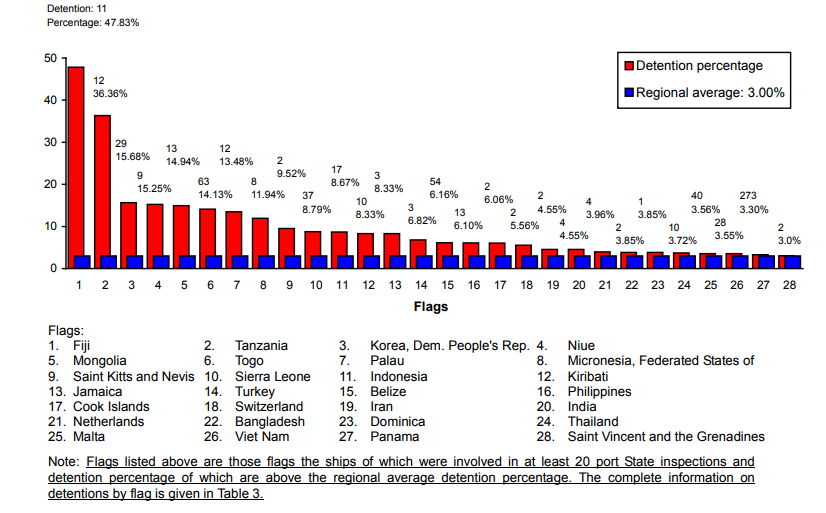
Deficiencies
- A total of 76,108 deficiencies were recorded in 2017.
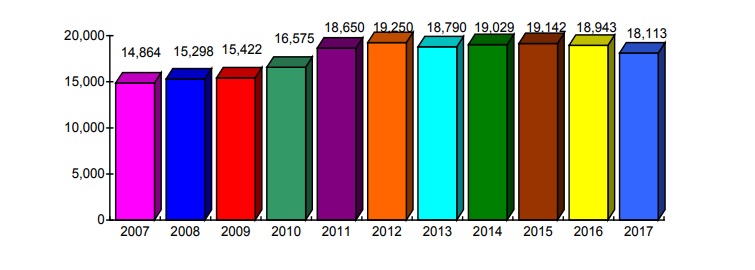
- Fire safety measures, safety of navigation and life-saving appliances continue to be the top three categories of deficiencies discovered on ships. In 2017, 13,707 deficiencies related to fire safety measures, 11,701 safety of navigation related deficiencies and 9,787 deficiencies related to life-saving appliances were recorded, representing nearly 50% of the total number of all recorded deficiencies.
- Deficiencies reduced 5,163 in number or 6.35% by percentage. The reduction is found mainly in categories of fire safety, safety of navigation, life-saving appliances, radio communications, cargo operations and equipment and ISM.
- On the other hand, deficiencies relating to labour conditions/MLC, since its entry into force, have increased year-by-year, which is considered the positive consequence of wider ratification of MLC by the member Authorities (i.e. 6 or 30% member Authorities were Parties to MLC when entry into force in 2013; 15 or 75% by the end of 2017).
- During the four months after BWM Convention entered into force, 261 BWM related deficiencies were recorded by PSCOs. It is anticipated that this number will increase next year.
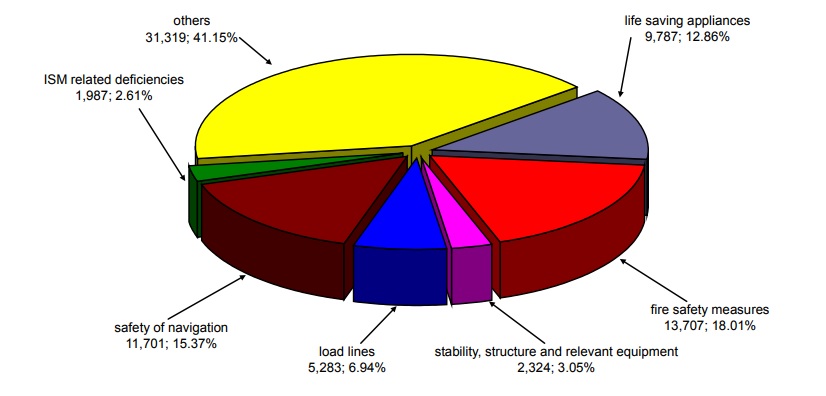
Explore more in the following report:







































